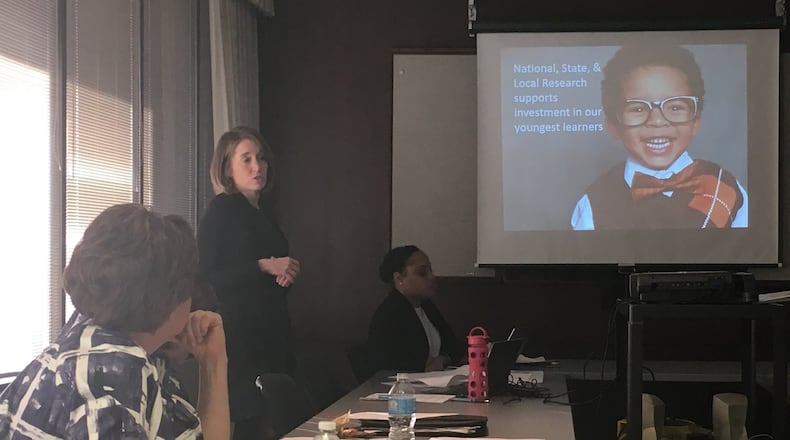“We have not set a cap on the number of children,” said Robyn Lightcap, executive director of Learn to Earn Dayton. “We will accept children on a first-come, first-served basis until we reach our tuition assistance limit. At this point, we anticipate being able to serve the families who apply.”
Preschool Promise is still in the process of signing up schools and other preschool providers this month, with the 2017-18 application process for families expected to launch in April, according to Lightcap.
Outside of Head Start and Dayton Public Schools preschools, which do not charge tuition, Lightcap said the average cost of full-time, full-year preschool in Montgomery County ranges from $7,000 to $14,000 per year, with the high-quality programs often above $12,000.
The tuition assistance for those programs will come from the city of Dayton’s income tax increase, as well as funding from Montgomery County, the Dayton and Kettering school districts, and private philanthropy. Montgomery County has led the push in recent years to expand high-quality preschool access, pointing to data that students who are ready for school when they start kindergarten have better long-term success.
Families can see the actual tuition assistance tables for both centers/school-based providers and family child care providers on the Preschool Promise website. Lightcap said tuition assistance for family child care is lower because their costs are lower.
The tables show that the highest level of aid actually goes to lower-middle class families. Preschool Promise officials said that is because the poorest families are eligible for separate federal assistance.
Four information sessions were held for preschool providers in the past month to explain the 2017-18 plan. Lightcap said turnout was great, ahead of a Feb. 24 deadline for providers to apply. Preschool board member Anissa Lumpkin said progress is being made despite tight deadlines.
“We’re meeting the timeline we had,” Lumpkin said. “We’re getting the providers on board, we’re meeting with parents regularly to get feedback before we go and make any decisions.”
Lumpkin said the “demonstration project” — a smaller-scale preschool expansion that’s been going on this school year — has allowed local officials to identify and deal with obstacles before the broader expansion coming this fall.
While much of the Preschool Promise board’s focus this week was on tuition, Lightcap said efforts to boost the quality of local preschool offerings will be key to the effort’s success.
About the Author

